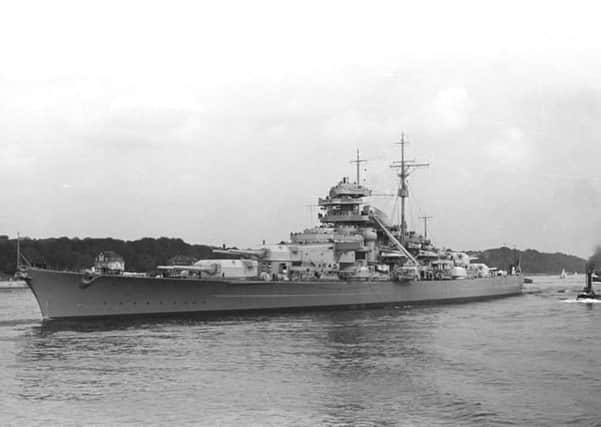Pupil of Father Sullivan helped to damage the Battleship Bismarck


Coincidently, on the same page and opposite my letter, on the Beatification of Fr John Sullivan (May 27), On This Day states, “1941: The German battleship Bismarck was sunk.”
The coincidence is that Lieutenant Commander Eugene Esmonde, a probable former pupil of Fr John, or at least contemporaneous with his time in Clongowes, took part in an earlier engagement with the Bismarck.
Advertisement
Hide AdAdvertisement
Hide AdOn the night of May 24, 1941, in foul weather and flying over 120 miles, Esmonde led No. 825 Naval Air Squadron’s nine Fairy Swordfish torpedo bombers and engaged with, and damaged, the Bismarck; apparently, an American serviceman (the US wasn’t yet at war) flying in a Catalina Flying Boat (shades of Lough Erne) had earlier spotted the German battleship.


Esmonde was awarded the Distinguished Service Order, DSO, for his leadership and actions. Some days later the Bismarck was attacked and disabled by a Swordfish strike from Ark Royal; the crippled Bismarck was then further engaged and went down, against enormous enemy odds; out of a crew of 2,200, manning the Bismarck, only 114 German sailors survived.
Esmonde earned a posthumous Victoria Cross, VC, following an engagement, in February, 1942, with the German battleships, Scharnhorst and Gneisenau.
He led a detachment of six Fairy Swordfish in an attack on these formidable battleships; Captain Hoffman of the Scharnhorst is quoted as exclaiming, “Poor fellows, they are very slow, it is nothing but suicide for them to fly against these big ships”; only five of the eighteen Fairy Swordfish aircrew survived the engagement.
Eugene Esmonde’s courage, along with that of others, was referred to by Sir Winston Churchill, in a speech broadcast in May 13, 1945.
Micheal O’Cathail, Fermanagh